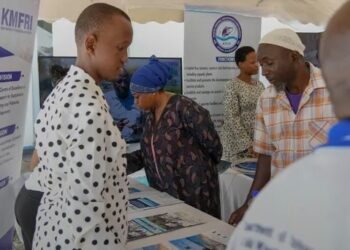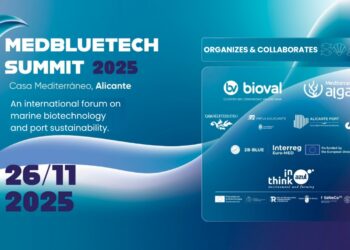The 36th Session of the Committee on Fisheries( COFI36) Concludes with Renewed Commitments to Sustainable Growth of Fisheries and Aquaculture – The 36th Session of the Committee on Fisheries (COFI36) concluded at the headquarters of the Food and Agriculture Organization of the United Nations (FAO) in Rome.
The Committee on Fisheries (COFI) served as the largest global gathering of policymakers, experts, and partners in the fisheries and aquaculture sector. From (8-12 July) the COFI36 meeting focused on the vital role of fisheries and aquaculture in tackling food insecurity, malnutrition, and poverty, stressing their ability to alleviate hunger, drive sustainable growth, and reverse environmental degradation.
“An increasingly expanding global aquaculture sector had driven the supply of fish and fishery products to new records. In 2022, aquaculture had overtaken capture fisheries as the main supplier of aquatic animals. Ensuring the expansion of sustainable aquaculture had been of fundamental importance for consumers,”

QU Dongyu, the Director-General of FAO, had said in a video message at the opening of the session.
Last month FAO issued the latest edition of its The State of World Fisheries and Aquaculture (SOFIA) report which showed that world fisheries and aquaculture production had hit a new high of 223.2 million tonnes in 2022. In his message, Qu pointed out that aquatic foods must contribute further to the fight against hunger and malnutrition for a growing population. But, for this to be the case, the sector needed to ensure aquaculture continued to grow sustainably, particularly in food deficit regions, and that successes in setting effective fisheries management systems were extended to fisheries whose sustainability had been challenging.
Furthermore, the FAO Director-General had said, that developing the value chains of aquatic foods, including by reducing loss and waste and facilitating product access to markets, had also been urgent.
Addressing global challenges in aquatic food systems was a key focus of the conference. Topics discussed included the role of aquatic foods in global food security and nutrition, their potential as a solution to climate change, and the contribution of effective management to long-term biodiversity goals. Additionally, solutions and actions to address pressing challenges confronting aquatic food systems, such as climate change and plastic pollution, have been explored.
Central to the discussion had been efforts to enhance data collection and stock assessment systems to inform fisheries management, urging countries to strengthen evidence-based policymaking. At the session, the first results of FishMIP 2.0, a global initiative forecasting the impact of climate change on marine ecosystems and fisheries under different future climate scenarios, were presented.
Biodiversity conservation had featured prominently, with a call to delegates to discuss the implications of the Kunming-Montreal global biodiversity framework on fisheries and aquaculture in both large marine ecosystems and in areas beyond national jurisdiction.
Also held was a high-level event marking the tenth anniversary of the endorsement of the Voluntary Guidelines for Securing Sustainable Small-Scale Fisheries in the Context of Food Security and Poverty Eradication (SSF Guidelines), which had highlighted the critical contributions of small-scale fishers and fish workers to food security, nutrition, and livelihoods, particularly in low-income and lower-middle-income countries.
During the COFI36 session, the main outcomes reached during the previous session of its sub-committees on Aquaculture, Fisheries Management, and Trade were presented. The Guidelines for Sustainable Aquaculture have been reviewed for final endorsement, aiming to harness the sector’s potential to sustainably meet the growing global demand for aquatic foods. In addition, the work and steps required for the finalization of the FAO Guidance on Social Responsibility in the Fisheries and Aquaculture Value Chains have been discussed.
COFI36 also hosted an interactive digital exhibit showcasing Blue Transformation in action, featuring tools, devices, 3D models, and an interactive virtual tour aboard the research vessel Dr. Fridtjof Nansen. Side events had returned to the COFI agenda for the first time since the COVID-19 pandemic, covering a range of issues including implementing the Guidelines for Sustainable Aquaculture, resilient and productive aquaculture development, success stories of women’s empowerment in small-scale fisheries and aquaculture, and youth voices in fisheries.
The Committee on Fisheries (COFI), a subsidiary body of the FAO Council, was established by the FAO Conference in 1965. It had served as the only global inter-governmental forum where FAO Members met to consider the issues related to fisheries and aquaculture, providing periodic global recommendations and policy advice to governments, regional fishery bodies, civil society organizations, and actors from the private sector, and the international community.
The 36th Session of the Committee on Fisheries( COFI36) Concludes with Renewed Commitments to Sustainable Growth of Fisheries and Aquaculture







